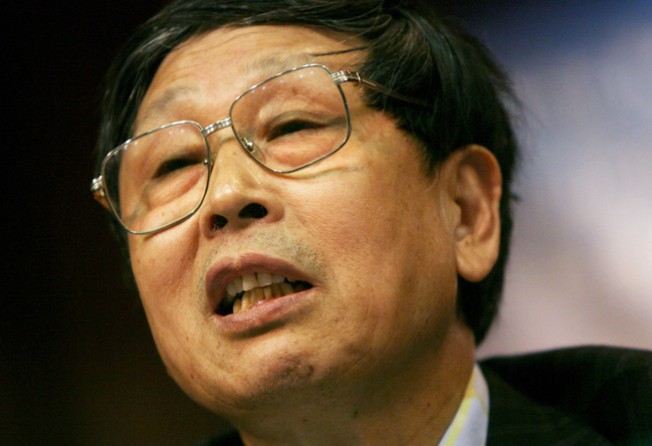Former top judge Andrew Li's defence of Basic Law attacked as 'an error'
Mainland expert attacks ex-judge's stance on city's legal autonomy as 'violation of principle'

An influential mainland legal scholar has accused Hong Kong's former top judge of making "a fundamental legal error" by suggesting the city's legal system could be undermined if Beijing reinterprets judgments by the city's courts.
In comments that have sparked intense debate, former chief justice Andrew Li Kwok-nang said on Wednesday that China's top legislative body should not use its power to reinterpret Hong Kong's mini-constitution - the Basic Law - after the city's top court has reached a final judgment, otherwise judicial independence would be damaged.
Li said: "In my view, the [National People's Congress] Standing Committee's power to interpret the Basic Law should not be exercised to override a court judgment in Hong Kong, especially one of the Court of Final Appeal."
While the position set out by Li - who was the first post-handover chief justice and served until 2010 - was backed by legal heavyweights and other Basic Law experts, Professor Dong Likun expressed pointed criticism.
Dong, a senior research fellow at the Institute of Hong Kong and Macau Affairs, said: "Justice Li is a man of high legal quality, but his view has violated basic legal principles and commits fundamental errors about the law."
He added that Li was wrong to suggest the Basic Law was a standalone constitution when it came under national laws. As such, Dong said: "NPCSC interpretations should follow a wrong Court of Final Appeal judgment. They sought to uphold - not destroy - Hong Kong's rule of law."
Senior barrister Martin Lee Chu-ming, a drafter of the Basic Law and veteran pro-democracy politician, yesterday threw his weight behind Li, recalling Beijing's landmark intervention in a key 1999 right of abode case and citing Article 158 of the Basic Law, which states that requests for interpretation should be raised before a final court judgment.
Lee criticised Beijing for intervening in the city's judicial independence when the court did not rule in its favour. "The central government leaves the ruling alone if it likes it, while it seeks to intervene using a Basic Law interpretation when the court ruling isn't as they intended it to be."
This form of interpretation effectively demoted the Court of Final Appeal to the "court of semi-final appeal", Lee said.
Professor Albert Chen Hung-yee, a member of the Basic Law Committee which advises on interpretations of the mini-constitution, said the government had learned a lesson after the right of abode episode in 1999, when Beijing intervened to override a judgment reached by the city's top court.
Chen said the government was aware such an interpretation should be avoided and it was unlikely to happen again.
Former National People's Congress deputy Ng Hon-mun said that under the Basic Law the government could seek an interpretation from the Standing Committee even after the top court had handed down its judgment.
Li had also weighed in on the TV licence saga when he spoke on Wednesday, saying the courts were not there to solve political, social or economic problems.